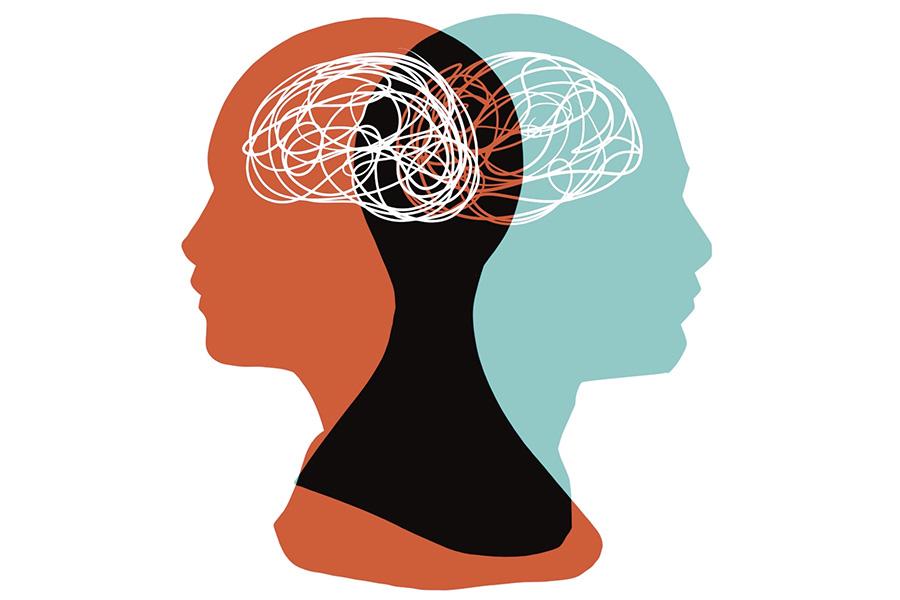Inpatient Mental Health Solutions: A Path to Recovery and Security
Inpatient mental health and wellness solutions play a critical function in resolving intense emotional dilemmas, using a carefully structured environment that fosters recovery and security. The intricacies of the admission procedure and the relevance of aftercare raising essential inquiries regarding ease of access and efficacy in the broader context of psychological health and wellness care.
Comprehending Inpatient Mental Wellness Providers
Inpatient psychological health and wellness services are necessary for giving extensive and organized treatment to people experiencing serious psychological distress or mental disorder. These services typically include the admission of patients to specialized centers where they receive continuous supervision and support from a multidisciplinary group of mental health experts. The primary objective of inpatient care is to maintain clients, guaranteeing their security and addressing intense signs that might present a risk to themselves or others.
Inpatient programs usually consist of a series of therapeutic treatments, including private and group treatment, drug monitoring, and psychoeducation. The structured setting is developed to advertise recovery by using a consistent regimen, minimizing outside stress factors, and helping with the advancement of dealing techniques.
When outpatient therapy alternatives have shown insufficient or when a client is in situation,Admission to inpatient solutions is generally considered. Facilities might differ in regards to their certain focus, with some focusing on particular conditions such as substance, stress and anxiety, or depression use. Through extensive evaluations and tailored treatment plans, inpatient mental health services aim to provide the necessary support for individuals to regain stability and prepare for a transition to much less extensive degrees of treatment.
Benefits of Inpatient Care
The advantages of inpatient treatment are substantial, especially for individuals facing intense psychological health obstacles. Inpatient therapy supplies an organized setting that cultivates healing by minimizing distractions and stress factors connected with every day life. This regulated setting permits individuals to focus exclusively on their mental health and wellness, helping with the necessary time for recovery.
Moreover, inpatient treatment offers 24/7 access to healing and medical assistance. This constant accessibility guarantees that people can receive prompt attention throughout crises, which is critical for those experiencing severe episodes - Inpatient Mental Health Program. The collective technique among medical personnel, including therapists, registered nurses, and psychoanalysts, enhances the quality of care and advertises a thorough treatment plan tailored to private demands
In addition, the communal aspect of inpatient care promotes a feeling of belonging and assistance amongst people. Group therapy sessions and shared experiences can minimize sensations of seclusion, motivating people to involve in their recuperation proactively.
Additionally, inpatient programs typically give individuals with necessary coping approaches and abilities that can be testing to develop in outpatient setups. By addressing underlying issues within a helpful structure, inpatient care can bring about more secure results and a smoother change back to day-to-day life, inevitably leading the path to sustained recovery.
Treatment Approaches and Therapies
Different treatment methods and treatments are employed in inpatient psychological health and wellness services to resolve the unique demands of each individual. These techniques are created to facilitate healing and advertise emotional security in a structured setting.

Cognitive Behavior Treatment (CBT) is an extensively made use of approach, assisting people in identifying and altering unfavorable thought patterns that add to their mental health problems - mental health services. Dialectical Behavior Modification (DBT) is an additional efficient technique, especially for those with borderline character problem, concentrating on psychological regulation and interpersonal effectiveness
Pharmacotherapy plays a critical go to this site role in therapy, with psychiatric medicines prescribed to manage signs of problems such as anxiousness, schizophrenia, and depression. Routine surveillance and modifications make certain the efficiency of these drugs while reducing adverse effects.
Group treatment promotes a feeling of area and support amongst clients, enabling them to share experiences and coping methods. Additionally, all natural treatments, such as art and music therapy, advertise self-expression and emotional recovery.
Inevitably, the combination of these diverse therapeutic modalities provides a detailed treatment plan customized to each client's certain needs, intending to improve their general wellness and promote an effective shift back into daily life.
The Admission Refine
Browsing the admission procedure for mental wellness solutions is a critical first step toward recuperation. This procedure usually begins with an analysis conducted by a psychological health expert. Throughout this examination, the individual's mental health and wellness background, signs and symptoms, and immediate needs are thoroughly checked out. This detailed assessment aids establish the appropriate degree of care and makes certain that the client gets tailored therapy.
When the evaluation is completed, the next action includes talking about the possible therapy options. The specific and the treatment team collaboratively pick the most effective course of action, which might include inpatient treatment if the circumstance is more information considered extreme. This is followed by the completion of required paperwork, including insurance policy verification and permission forms, to ensure that all legal and monetary aspects are attended to.
Furthermore, family involvement might be encouraged throughout this stage to supply assistance and gather perspectives on the individual's scenario. Inevitably, the admission procedure intends to develop a supportive and risk-free environment for the patient, enabling a smooth change right into inpatient treatment. By recognizing and getting involved in this process, people can take a vital step toward achieving mental wellness security and recovery.

Aftercare and Ongoing Support
After completing an inpatient mental health and wellness program, people often face the crucial task of transitioning to aftercare and ongoing support, which are necessary for sustained recuperation. This stage is crucial for enhancing the abilities and coping systems learned during the inpatient stay, guaranteeing that people remain to progress in their psychological health and wellness journey.
Aftercare typically includes a combination of outpatient treatment sessions, support system, and medication administration. Involving in routine treatment permits people to resolve recurring difficulties and create strategies to manage stress factors in their lives. Support system offer a sense of community and shared experience, promoting connection and understanding among peers facing similar struggles.
Additionally, ongoing support may consist of family members participation, where enjoyed ones are enlightened regarding psychological health and wellness problems and motivated to take part in the recovery process. This all natural strategy develops a durable support network, enhancing the person's opportunities of lasting stability.
Eventually, aftercare and ongoing assistance work as a bridge between inpatient therapy and independent living, equipping individuals to navigate their psychological health and wellness challenges with strength and self-confidence. Prioritizing these sources is crucial for promoting a sustainable recuperation trajectory.
Final Thought

Inpatient mental wellness services play a critical function in dealing with intense psychological situations, providing a carefully organized setting that promotes recovery and stability.Inpatient psychological health solutions are essential for supplying intensive and structured care to individuals experiencing extreme psychological distress or psychological disease. Via comprehensive evaluations and tailored treatment strategies, inpatient psychological health solutions intend to offer the needed assistance for individuals to restore security and prepare for a transition to less extensive degrees of care.
